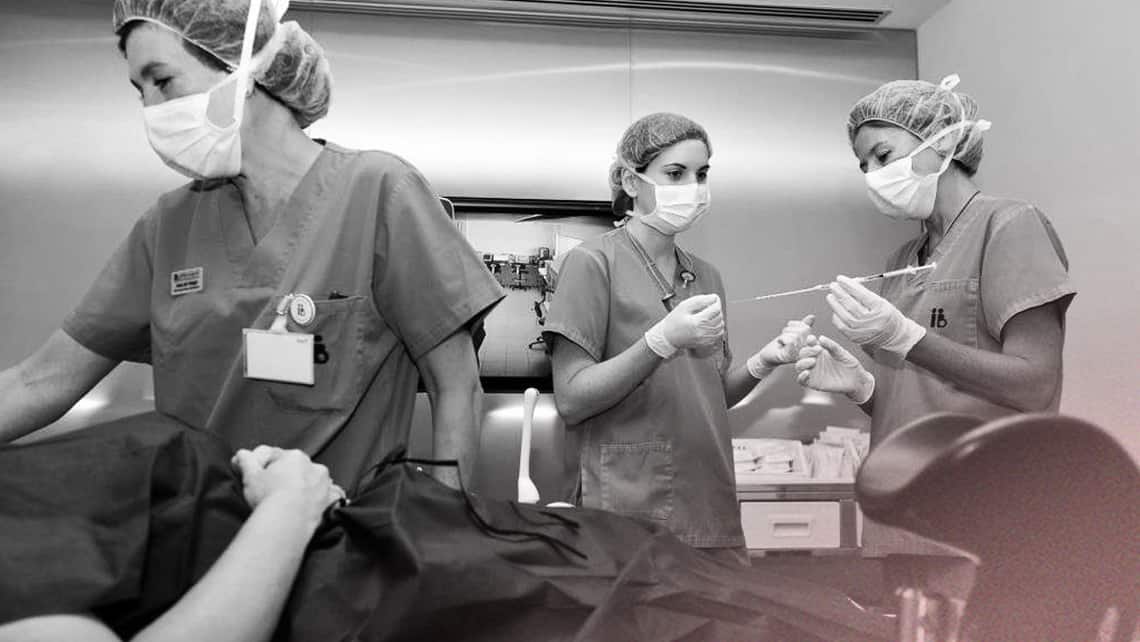
Recommendations following embryo transfer
Transfer is undoubtedly one of the most important steps in assisted reproduction treatment.
When the patient steps out of the transfer room, a new beginning takes place and the experience will be totally different to what she has undergone up until that point. The embryos have now been transferred and the countdown to the pregnancy test has begun.
It’s important that patients understand that when they go to the toilet to urinate following embryo transfer, the embryos do not ‘fall out’ nor do they get lost since they are situated inside the uterus, a part of the body which is quite different to the one we use for urinating.
Índice
What medication can and should I use following embryo transfer?
The only medication which the patient will need to take is the medication recommended by the gynaecologist. Details on how it should be taken will be included in the prescription or paperwork provided on leaving the clinic. (see more about assisted reproduction medication)
If the patient suffers from pain in the lower abdomen, a headache or mastodynia (breast pain), painkillers such as paracetamol or Nolotil® can be taken (Ibuprofen and aspirin® are not recommended).
How long should I rest for following embryo transfer?
It is not necessary for the patient to rest for any longer than the time spent in the clinic. In other words, once she has been given the go-ahead to leave, the patient should lead a normal and relaxed life over the next few days and up until the day when the pregnancy test is taken, Until the pregnancy test (beta).
Intense physical exercise should be avoided. This includes sports such as running, spinning, aerobics, boxing, legs/abs/glutes training and other high-risk, physically demanding sports.
The patient may drive, take walks and work as long as this does is not physically demanding or involve prolonged physical activity.
The patient may go on any form of travel (car, plane, train) without the vibrations nor the altitude having any negative effect on the treatment she has undergone.
Having a bath and swimming in a pool or in the sea should be avoided. This is in order to avoid potential infections because of the very slight possibility of water entering the uterine cavity and so that the vaginal medication being taken is not affected. You can, of course, shower.
Unfortunately, sexual relationships should be avoided. This includes penetration and orgasms. Over the first few days, the uterus should not suffer contractions. There are some positions during penetration which can lead to the cervix being touched and this can lead to slight contractions. Contractions of this type can also happen during orgasms.
What type of diet should I stick to following embryo transfer?
The patient’s diet should be healthy and balanced and include food of all kinds. There is no need to strictly avoid any particular foodstuffs. You can, for example, occasionally drink alcohol or coffee. Unfortunately, there are no magical foods which can help us to fall pregnant.
Drinking plenty of liquids is recommended and the patient should check that urine is normal and that she is not suffering from excessive retention (feeling bloated). Excessive amounts of salt should be avoided.
Constipation is common. Our main recommendation is to include plenty of fibre in your diet: brown bread, cereal, fruit with a high fibre content (kiwis, apples, pears, avocados, plums, strawberries, etc.), pulses (peas, broad beans, soya, string beans) and vegetables (artichokes, cucumbers, asparagus, garlic, spinach, etc.).
If this does not help to improve the situation, a second option might be to take macrogol-type medication which works on the colon and increases liquid content in faeces which helps to expel them.
What should I do if I begin to bleed or spot following an embryo transfer?
Slight discharges or blood following transfer should not set alarm bells ringing. It is not necessarily a sign of implantation failure or miscarriage. Indeed, taking progesterone itself can cause such side-effects.
Were bleeding to become significant and constant, the only recommendation which can be given is to rest until a 24 to 48 hour period has gone by with no bleeding. It’s impossible to know how the embryo is developing until the pregnancy test can be carried out, And also if bleeding is due to implantation bleeding. Nothing can be observed on an ultrasound scan until a certain period of time has gone by.
Last of all, and by way of a more objective recommendation, the patient should remain as calm as possible. We are aware of all the emotions and feelings which come into play and, as such, recommend that situations which might lead to stress or anxiety be avoided. Spend time with the family and friends with whom you feel most at ease and, of course, during the wait for the result of the pregnancy test, the team at the clinic is also readily available if you need a little extra support.
